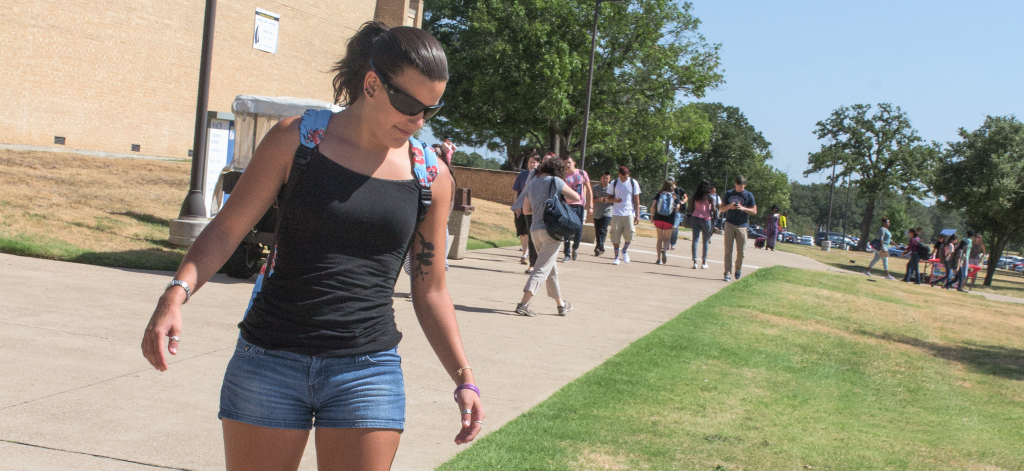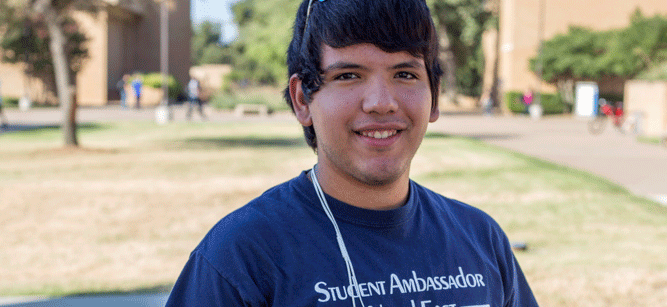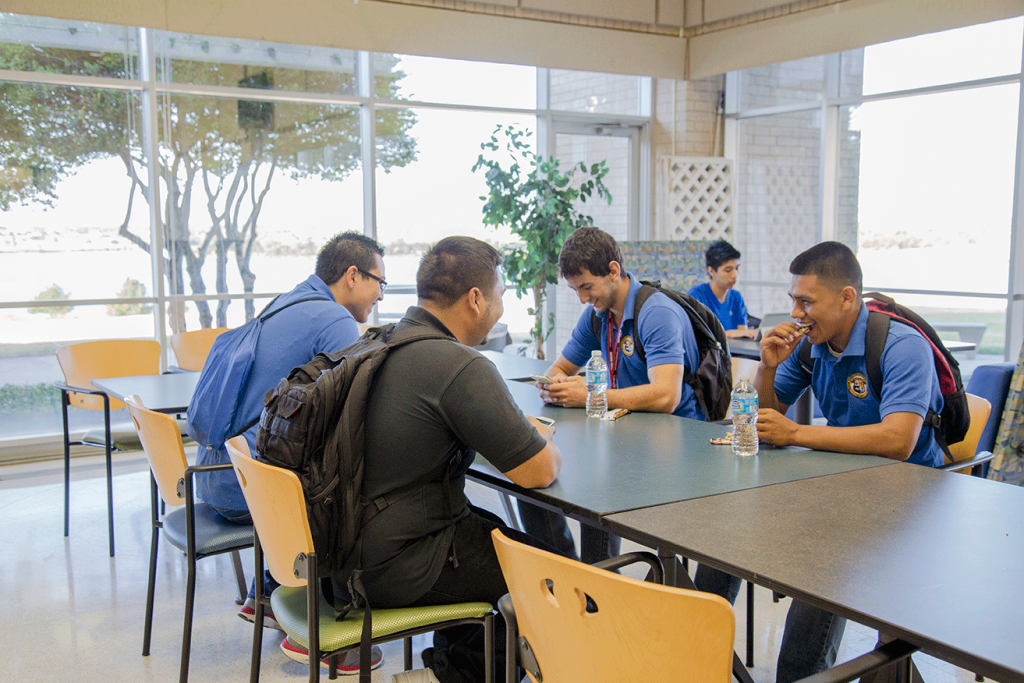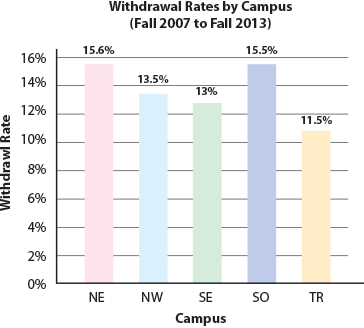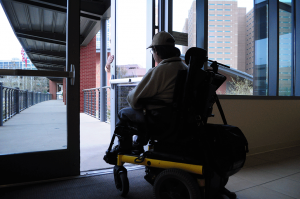
Collegian file photo.
By Mathew Shaw/reporter
Adapting to the needs of students with disabilities as well as faculty has been an ongoing process for the disability support services offices on each campus.
One of DSS’s projects is a faculty advisory committee, which is a way for the department to provide information about its services to faculty and address their questions and concerns, SE DSS coordinator Kaleb Cameron said.
“There are a lot of accommodations that require collaboration with faculty,” he said. “Providing accommodations for students with disabilities is an interactive process. It involves the DSS department and faculty to work together in supporting the students’ needs.”
These accommodations include providing alternative format materials, such as textbooks for students, allowing students access to copies of notes, letting students sit in the front of classrooms and allowing them special furniture (such as ergonomic chairs for students with back injuries).
Changes in enrollment trends, e-learning and federal law are other issues DSS is trying to adapt to, according to Ernie Gines, SE computer science associate professor. He said it might be more difficult for a student with disabilities enrolled in an e-learning class to receive the necessary accommodations, which is why he and DSS are working with TCC Connect to identify actions that need to be implemented.
“What new technology is e-learning utilizing?” he said. “And, also, new technical programs offered in an online environment will continue to present new challenges. Do they require any specialized equipment at home? Who pays for that?”
Gines said the increase in returning veterans will also present a greater need for adaptation.
“We have been seeing an increased number of veterans enrolling in classes,” he said. “With the reduction in force, you’re having more veterans returning to civilian life because the active duty force is being reduced.”
Because of these factors, TCC is in the process of updating its districtwide DSS manual.
These revisions are also in response to changes in the Americans with Disabilities Act, which will allow for more leniency with documentation for support services, NE DSS coordinator Kim Eason said.
“It’s like a living, breathing document,” she said. “The purpose of changing the DSS manual is to make sure we are in compliance with the law, to make students and faculty know their rights and responsibilities.”
In response to more students using service animals, Eason said the regulation for service animals will be added to the manual. Under these regulations, service dogs must be licensed in accordance with city and state regulations, wear a valid vaccination tag and be trained to do work and perform tasks for students with disabilities.
Renovations were made to SE’s DSS office during summer 2013. These mostly had to do with adding space for alternative testing and for students to use assistive technology. Privacy and confidentiality were also factors.
“Before, we didn’t have a wall that separated our office from the hallway,” Cameron said.
The wall shields students from noise for when they are testing, he said.

























